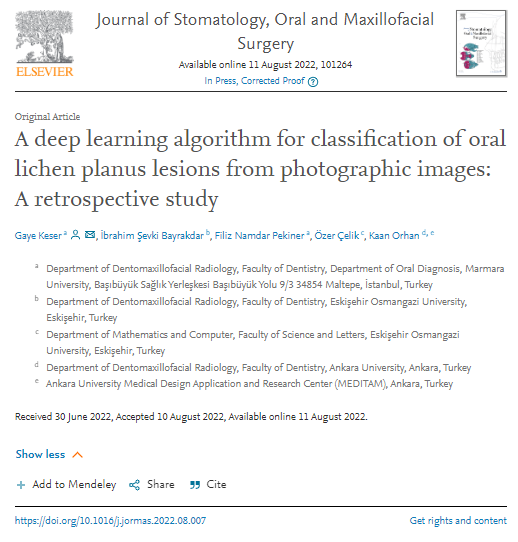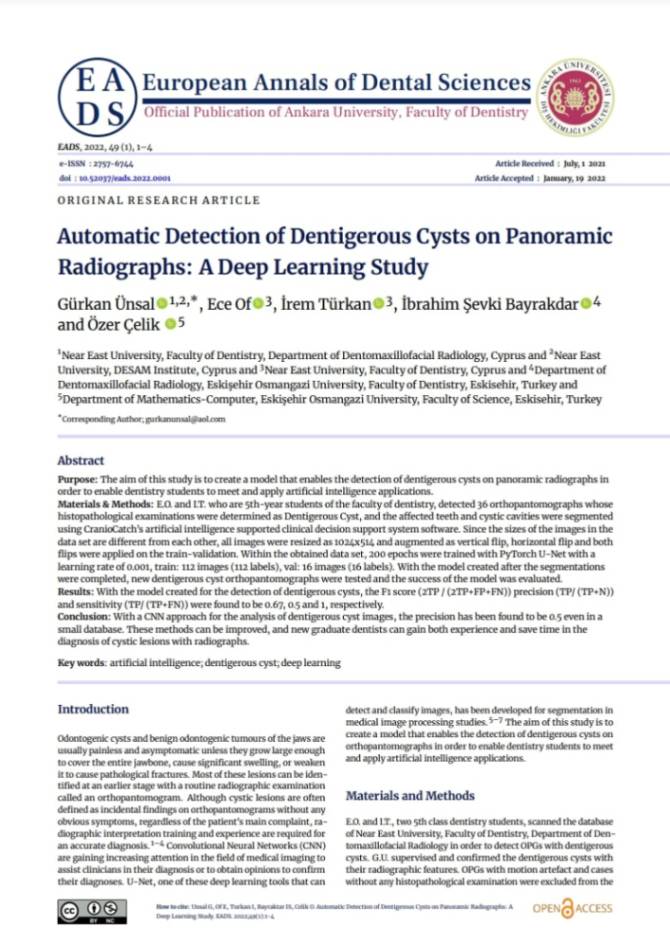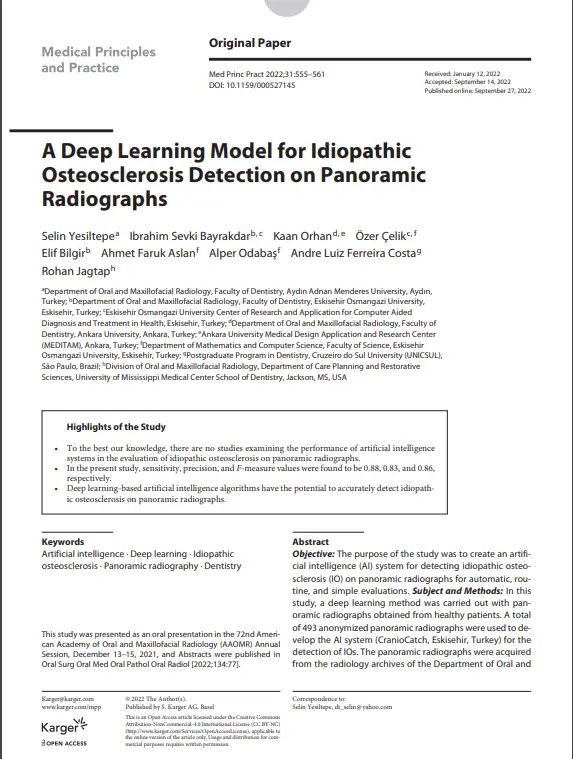A Deep Learning Approach To Detection Of Oral Cancer Lesions From Intra Oral Patient Images: A Preliminary Retrospective Study
Introduction
The study addresses the critical need for early diagnosis of oral squamous cell carcinoma (OSCC), emphasizing the importance of effective and noninvasive diagnostic methods. The researchers hypothesized that artificial intelligence (AI) could diagnose oral cancer lesions from intraoral images with accuracy comparable to that of experienced physicians.
Study Design and Methodology
- Approval and Ethics: The study protocol was approved by the Marmara University School of Medicine Clinical Research Ethics Committee.
- Sample Selection: The study included patients with histopathologically confirmed diagnoses of OSCC from 2022 to 2024. Images were collected from common sites of OSCC, such as the lateral border of the tongue, buccal mucosa, and floor of the mouth.
- Image Acquisition: Retrospective photographic images of oral mucosa with SCC lesions were collected and labeled using the AI-powered CranioCatch program. All images were verified by an experienced oral medicine expert.
Deep Learning Architecture
The study employed a deep learning algorithm utilizing the YOLOv5 (You Only Look Once) architecture for the detection and segmentation of oral squamous cell carcinoma from photographic images. This architecture is known for its efficiency in real-time object detection.
Results
- The study achieved precision, sensitivity, and F1 scores comparable to previous studies, indicating the potential of AI in assisting with oral cancer diagnosis.
- The authors noted that while their results were promising, the sample size was limited, and further research with larger datasets is necessary to optimize AI learning capabilities.
Discussion
The authors discussed the potential of AI-based systems as supplementary diagnostic tools for oral cancer lesions. They highlighted the need for large-scale databases with accurately labeled data to enhance the performance of AI systems. Additionally, they acknowledged the importance of addressing patient confidentiality and data security in future research.
Limitations
The study faced limitations, including:
- A small sample size, which may affect the generalizability of the findings.
- The retrospective nature of data collection, which limited the availability of demographic information.
Conclusion
The study concluded that AI has significant potential in the early detection of oral cancer lesions, but further research is needed to validate these findings and improve the algorithms used.
Acknowledgments
The study was presented at the 2nd International Congress of Oral Cancer, where it won the 2nd prize for best oral presentation.
I Want to Write a Scientific Research Project
CranioCatch is a global leader in dental medical technology that improves oral care in the field of dentistry. With AI-supported clinical, educational, and labeling solutions, we provide significant improvements in the diagnosis and treatment of dental diseases using contemporary approaches in advanced machine learning technology.
CranioCatch serves thousands of patients with dental health issues worldwide every day with its innovative technologies. That’s why we eagerly look forward to meeting our valued dentists who wish to work in the field of 'Scientific Research in Dentistry'.



 Contact Us
Contact Us

